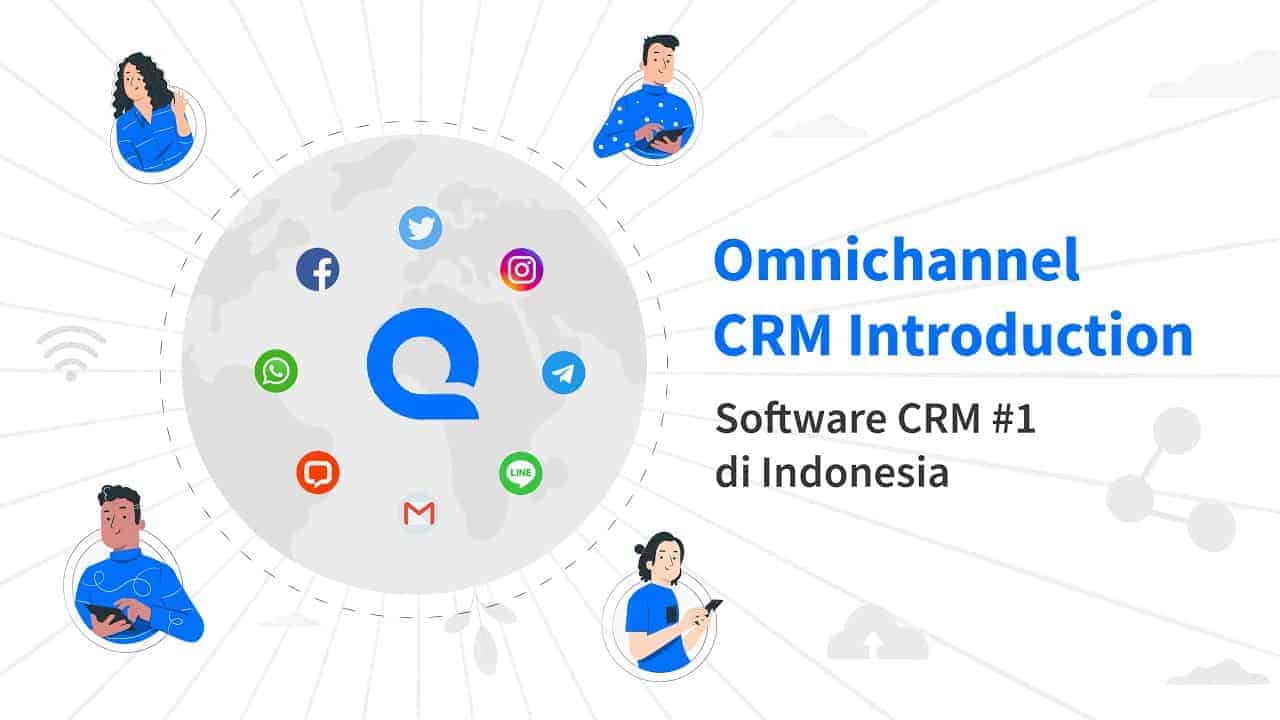
A CRM system does more than just store customer details. It can help you increase sales, retain customers, and grow your business.
This article will explain how a CRM can assist you in achieving your business objectives and making more sales. Let’s explore further below!
Benefits CRM for Sales
CRM is helpful for sales teams because it helps them handle customer interactions and information more efficiently.
A CRM system can give useful information about how customers act and what they like. It can also do repetitive tasks automatically, making it easier for sales teams to work together.
Businesses can use CRM to improve their sales and earn more money in different ways.
For instance, a CRM system lets companies group their customers and focus on each group with more personalized and effective marketing and sales strategies.
Also Read: What is a CRM System and How CRM Can Benefit Your Business?
How Does a CRM Increase Sales?
Using a CRM can help a business sell more and make more money. Here are some ways on how to increase sales using CRM:
1. Better Grouping and Targeting
With a CRM, a company can sort its customers based on age, past purchases, and interactions.
This helps them aim their marketing and sales efforts at specific groups of customers with messages that fit them better.
2. Getting More Done
Some parts of handling customer relationships, like gathering data and keeping up with follow-ups, can be done automatically with a CRM.
This means the sales team can spend more time on essential tasks like closing deals and building relationships with key customers.
3. Knowing Customers Better
A CRM system can give a company helpful information about how customers act and what they like. This includes things like their buying habits and what they’re interested in.
This data helps companies make better choices about what to sell, how much to charge, and what promotions to use, which can lead to more sales.
4. Better Communication and Teamwork
Sales teams can use a CRM system to track how they talk to customers and share information.
When they work together better, it can make customers happier and more loyal, which can lead to more sales.
5. Managing Leads
A CRM system helps companies track possible sales leads, rank them by importance, and keep up with follow-up.
This increases the chances of turning leads into sales by ensuring they get the attention they need.
6. Predicting Sales
Sales teams can use a CRM to guess how much they’ll sell and make in the future. This helps them decide what to focus on and where to put their resources for better sales.
7. Seeing the Sales Process
Sales CRM software can visually show the sales process, making it easier to spot where things are getting stuck or new opportunities.
This helps sales teams pay more attention to the most promising leads and adjust their sales plan.
8. Automating Marketing
Tasks like sending emails, taking care of leads, and managing social media can be automated with a CRM system.
This makes sure that marketing messages are directed at the right customers and makes marketing more effective, which can lead to more sales.
9. Suggesting More Sales
A CRM can help companies spot chances to sell more to their current customers.
By knowing what they like and how they buy, companies can suggest other products or services they might be interested in, which brings in more money.
10. Keeping Customers Around
A CRM system helps companies find and fix customer problems before they decide to leave.
By staying on top of customer interactions, businesses can solve issues quickly and ensure customers are happy with what they offer.
This can make more money in the long run by keeping customers returning.
Also Read: 10 CRM Strategies and 11 Best B2B Sales Strategies for Your Business
How Much Can a CRM Increase Sales?
The amount a CRM can increase sales depends on the company’s size, industry, and the specific CRM system used.
However, studies have shown that using a CRM can make a big difference in sales.
For example, one study from Nucleus Research found that companies can get back an average of $8.71 for every dollar spent on a CRM system.
Another research from Finances Online found that companies that use a CRM system fully can increase their sales by up to 29%.
However, it’s important to know that getting a CRM system isn’t enough. You need a plan and a team to run it properly. If the sales team doesn’t use it right, you won’t see the results you expect.
Conclusion
A CRM system can boost how well a business sells its products or services. CRM helps companies make more intelligent choices, use their resources better, and, most importantly, sell more.
It automatically gives valuable information about customers, does tedious tasks, and makes communication and teamwork smoother.
So, to step up your sales game, think about getting a CRM system. Ready to make your sales better?
Stop doing data entry by hand and say hello to more sales with Mekari Qontak. Sign up now to see how a CRM can make a big difference.








